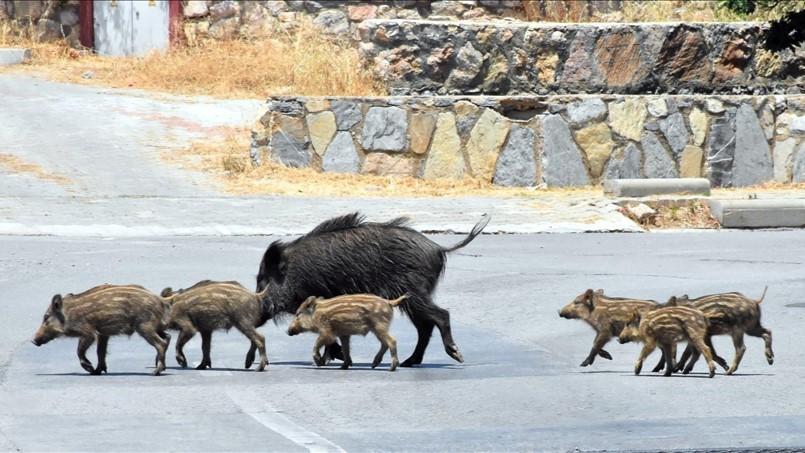
The World Wide Fund for Nature (WWF) Türkiye has warned that the destruction of wildlife habitats is forcing animals into cities, calling for ecological corridors to allow animals to move safely between natural areas.
In Türkiye, reports of wild animals entering urban areas periodically make headlines.
Especially in the Aegean and Mediterranean regions, wild boars are increasingly seen roaming neighborhoods in search of food, water and a secure shelter during the summer months.
According to a senior biodiversity specialist and veterinarian from WWF-Türkiye, Ahmet Emre Kütükçü, population growth, climate change and shrinking food sources are driving wild animals into urban and agricultural areas.
“Habitat destruction from new settlements, roads, and mining disrupts animals’ access to food, water and breeding sites,” Kütükçü explained.
As natural areas shrink and become bordered by human development, wildlife is forced to explore larger territories, often entering cities, he added.
The expert emphasized that habitat fragmentation is the main barrier to wildlife survival.
Properly designed ecological corridors, based on scientific data, could allow animals to move safely between habitats, according to Kütükçü.
He added that improving food availability and overall biodiversity in natural areas can further reduce wildlife encroachment into cities.
Some species have adapted to urban life. Hedgehogs and land turtles, for example, are now commonly seen in cities, while birds of prey such as falcons may nest on skyscrapers and hunt pigeons.
However, Kütükçü warned that human feeding of wildlife can create risks, including disease transmission.
As urbanization and agricultural expansion continue, wildlife entering cities poses both economic and health risks, highlighting the urgent need for proactive habitat management.